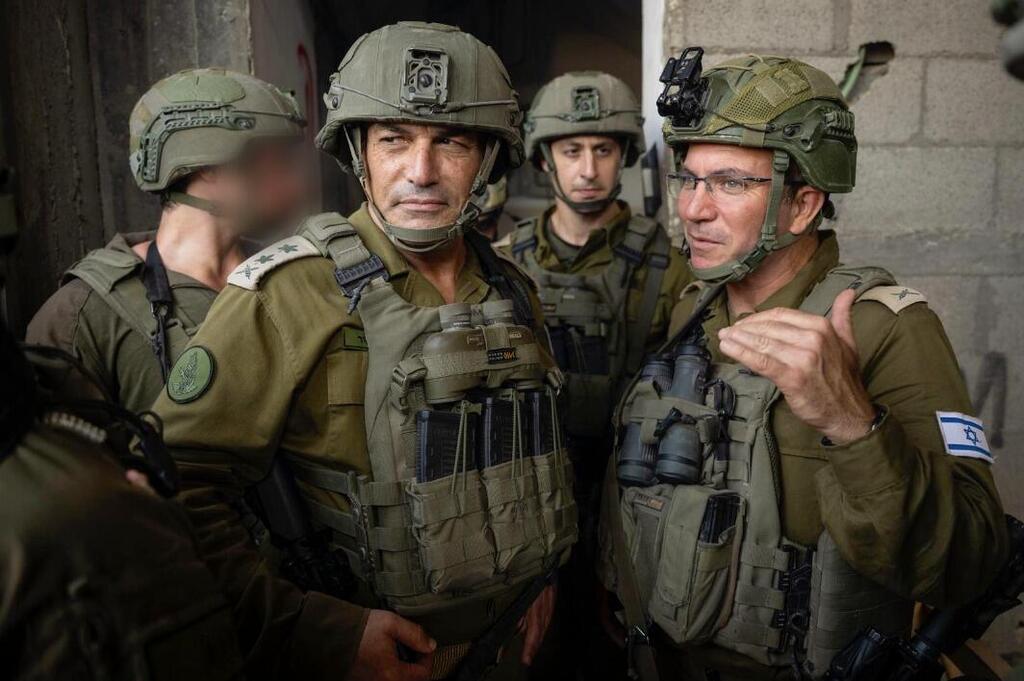While the IDF did not officially respond to reports that figures close to Netanyahu had suggested Chief of Staff Lt. Gen. Eyal Zamir could be removed if he opposed the government’s war plans, the army announced just minutes before those reports surfaced that it was canceling the wartime emergency order that had extended regular soldiers’ reserve duty by an additional four months since the Oct. 7 Hamas-led massacre.
The reversal is seen as Zamir’s answer — in action, not words — to growing political demands for the full occupation of the Gaza Strip, a move that would require the mobilization of tens of thousands of troops. In recent days, senior officials aligned with Netanyahu have publicly declared that “the direction is full occupation,” and suggested that opposition from the military leadership could be grounds for resignation.
Zamir, who was expected to travel to the United States this week to attend a CENTCOM change of command ceremony, canceled his trip amid what officials said was a breakdown in ceasefire and hostage deal negotiations.
Instead, Zamir opted to scale back the army’s operational posture. Under the new plan, every regular battalion will shed the equivalent of a company, returning dozens of soldiers to the reserves. The move effectively reduces the available standing ground force and signals that the IDF does not currently see a full-scale invasion of Gaza as imminent or advisable.
The emergency order had been widely accepted in the war’s early months due to urgent operational needs. But in recent weeks, it drew intense criticism from families and lawmakers amid a surge in suicides among active-duty and reserve troops. Several soldiers petitioned Israel’s High Court to strike down the extension.
Military officials said the decision also acknowledges what many in the army believe: that the war has effectively ended, even if not declared so officially. The recent ground operation in Gaza, dubbed Gideon’s Chariots, relied heavily on regular army units — forces now being scaled down.
A separate decision by Zamir also rolled back a controversial policy that had required elite unit soldiers to serve beyond their original contract terms. “We’ll face another manpower gap in the coming year because of this decision, which may not begin to close for two years,” the IDF said Monday. Officials cited expanding security demands, service inequality, soldier burnout and “short-term fixes” that were producing more harm than benefit.
“We understand the degree of exhaustion,” the IDF said in a statement. “After extensive conversations with troops across units, we identified critical flaws in the new service model. The delay in discharges caused serious damage to the reserves system, disrupted team cohesion, and undermined the transition pipeline between active and reserve duty.”
As part of the shift, commanders will be provided with voluntary service extension packages, allowing them to offer longer terms to soldiers without mandating them.
“The chief of staff made this decision in light of the IDF’s intense operational tempo across multiple fronts over the past two years,” the military spokesperson said. “Beginning November 2025, discharge delays for all ground forces will end, providing our troops with breathing room. These steps reflect concern for their quality of life and rights, and will help sustain the operational effectiveness of elite units while easing the burden on reservists.”
In practical terms, the IDF’s regular forces — currently leading limited operations in Gaza — will shrink in the coming weeks, as hundreds or even thousands of soldiers are discharged on time. “There are many constraints,” the IDF acknowledged. “We face a significant personnel shortfall over the next year. The military has relied on stopgap measures to compensate for these gaps, but our battalions are worn down, and the demands continue to grow. There’s increasing unease with how the new model resembles a professional military more than a people’s army.”
Zamir is expected to brief the Security Cabinet Tuesday on the potential costs of a renewed ground campaign. Such an operation would involve the deployment of tens of thousands of soldiers — many from the reserves — to Hamas strongholds in western Gaza City, where the army has not operated for nearly a year. It would also target Hamas battalions left untouched due to the presence of hostages and include a push into al-Mawasi, where senior Hamas commander Mohammed Deif was recently killed and which remains a refuge for hundreds of thousands of displaced Palestinians.
The military has warned that expanding ground operations could endanger the hostages and destabilize quiet fronts elsewhere in the region. Netanyahu, under pressure from right-wing ministers, has delayed a Cabinet vote on the next phase of the war amid reported divisions with the military echelon.
Though no official statement has been made, Zamir’s actions suggest the army is bracing for further political friction — while signaling its own red lines.





